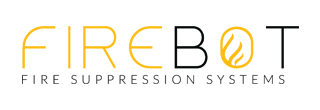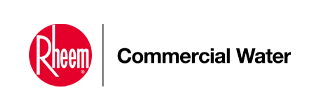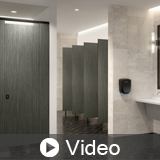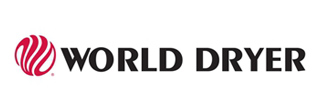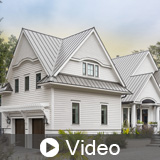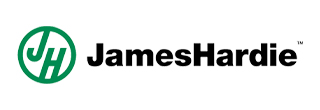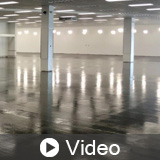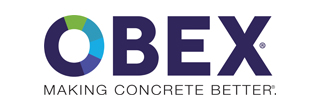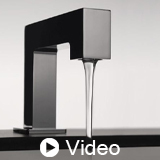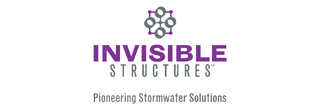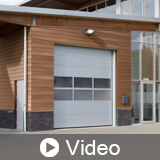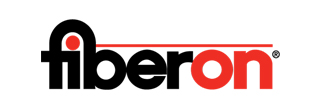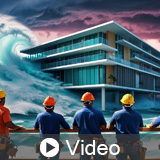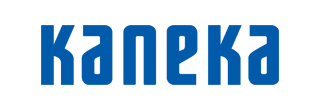What do a 2,400-year-old philosopher and today’s toughest client meetings have in common? More than you think. In this course, you’ll discover how ancient Greek Cynic philosophy can help you defuse conflict, win over clients, and keep your sustainable design goals on track. Packed with real-world case studies and practical tools, this course shows architects, engineers, and contractors how to navigate high-stakes conversations about eco-friendly materials, resolve team tensions when budgets clash with sustainability, and build long-term client trust through radical honesty and clarity.

LEED General Courses
Need continuing education to maintain your LEED credential? Do you want to learn more about LEED certification? All courses offer AIA CE and GBCI credit hours applied towards your architect license requirements. All courses listed provide AIA HSW and GBCI general CE hours. Once you have completed the AIA online courses and GBCI CE courses, we will report your earned course credits automatically. AIA Continuing Ed and courses about LEED certification are available online anytime, 24/7/365! GreenCE is a USGBC Education Partner and offers free courses about LEED certification.
$35.00 |
|
In a world of escalating environmental crises and competing priorities, where does a design professional find the clarity and courage to champion truly sustainable solutions? The answer might be 2,300 years old. This course bridges ancient Stoic philosophy with contemporary sustainable design practice, offering a powerful ethical framework for navigating the complex challenges of our profession.
$35.00 |
|
AWARDS GBCI CREDIT. NO AIA CREDIT. This course explores the intersection of safety and sustainability in modern fire suppression systems, with a focus on kitchen environments—the leading setting for residential fires. Participants will identify the most common causes of kitchen fires and assess how cutting-edge suppression technologies are mitigating these risks.
FREE |
|
A Heated Discussion: The Interrelationship Between Water Quality, Closed Loop Systems and Heat Pumps
Explore the nuances of water quality for closed loop hydronic boiler systems and how it impacts the overall operability and longevity of heating systems. Join us in this one-hour course as we discuss pH, Hardness, Total Dissolved Solids, Chlorides, and filtration of closed loops systems and the long-term performance of heat pumps. Participants will get in-depth knowledge of applicable code and standard criteria applicable to these systems.
FREE |
|
What professional responsibility do we bear for the environmental impact of our designs? In this thought-provoking course, participants will delve into the critical ethical dimensions of sustainable design that shape our built environment for generations to come. Explore how the AIA and ASCE Codes of Ethics translate into real-world obligations. What are our responsibilities in material sourcing? When budgets tighten, how do we defend sustainability without compromising project viability?
$35.00 |
|
This course provides design professionals with a comprehensive approach to designing commercial restrooms that prioritize occupant health, safety, and welfare through user-centered solutions, universal design principles, and product innovation. Participants will explore essential elements of restroom design, including the integration of accessible fixtures, code-compliant partitions, hygienic hand dryers, secure baby changing stations, and lockers.
FREE |
|
Prefinished fiber cement represents a transformative approach to building materials, offering architects and construction professionals a sophisticated solution that seamlessly integrates performance, sustainability, and aesthetic versatility. By leveraging advanced factory-controlled coating processes, these innovative products transcend traditional siding and trim limitations, delivering superior durability, consistent color quality, and enhanced weather resistance across diverse project types.
FREE |
|
Effective moisture control in concrete is a critical factor in the success of commercial flooring installations. This course will explore moisture control systems designed to maintain the structural integrity and aesthetic quality of flooring, ensuring long-lasting results. Participants will learn how to address common moisture challenges in concrete and how to select the right systems that provide confidence through warranty-backed solutions.
FREE |
|
Passing the standard, to establish a new mark in accessibility and window intercom systems. Join us in this comprehensive course on the advancements and innovations in window intercom systems, with a particular focus on the superior performance, quality, and design. In this course, participants will gain an in-depth understanding of the evolution of these systems, from outdated models that require holes in the glass to modern solutions that integrate seamlessly into window frames.
FREE |
|
Imagine walking through a city where every crack in the sidewalk, every forgotten alleyway, and every hidden elevation tells a story more complex and fascinating than any guidebook could ever reveal. Welcome to the world of deep topography, an interdisciplinary methodology for understanding spatial environments through multi-sensory, phenomenological exploration of geographical landscapes. Discover how LEED v4.1 BD+C strategies prioritize pedestrian-friendly designs and green spaces, ensuring cities are functional, culturally rich, and environmentally sustainable.
$39.00 |
|
In this course, the design professional will gain insight into water efficiency and the role of sustainable plumbing. We will discuss testing and standards, as well as emerging environmental technologies. The increasing importance of product transparency will be addressed, especially regarding contributions to LEED certification.
FREE |
|
This podcast course provides a comprehensive exploration of sustainable design and carbon management in the built environment. Participants will learn to differentiate between operational and embodied carbon, utilizing various tools and metrics for carbon design measures. A key focus will be discussing how Environmental Product Declarations (EPDs) aid design professionals and building product manufacturers in achieving their sustainability goals.
FREE |
|
Embark on a captivating journey through urban landscapes in this innovative course that merges sustainability with the psychology of city living. Explore key concepts of deep topography and psychogeography, revealing their influence on urban criticism and human connectedness. Dive into LEED v4.1 BD+C strategies that enhance urban occupants' sense of place through walking, interaction with green spaces, and cultural preservation. We examine how thoughtful urban planning enhances the human experience and well-being.
$39.00 |
|
In this course we explore how porous paving can help design professionals manage stormwater, increase accessibility, and provide a cost-effective low maintenance solution for design professionals. Our team discusses how porous paving can contribute to multiple LEED v4 credits and reduce environmental impacts. Finally, we review several case studies that illustrate the benefits of porous paving systems for various types of building projects.
FREE |
|
Customizable, integrable clean rooms designed for drug compounding environments. Join us for this one-hour course on adaptable clean rooms engineered for in pharmacy settings. Facilitating USP Compounding Compendium to guide the design, development and construction of clean rooms, these spaces are biotech, pharmaceutical companies, sterile and non-sterile environments and hospitals among many others.
FREE |
|
We explore the critical aspects of moisture management in building design, focusing on the implementation of effective rainscreen wall systems and composite cladding. Participants will learn to identify potential moisture-related issues that can impact aesthetics, structural integrity, and occupant health. The course explores color and design options for composite cladding, examines the four key components of rainscreen systems, and discusses best practices for sustainability and end-user wellness.
FREE |
|
In the heart of Los Angeles, where the skyline meets the unpredictable forces of nature, a battle is brewing against earthquakes, wildfires, mudslides, and more. As the city grapples with the looming threats of drought, smog, and power grid failures, design professionals are stepping up to create resilient buildings that can withstand the chaos. In this course, we discuss LEED v4.1 BD+C strategies to protect occupants and promote urban safety.
$45.00 |
|
As severe weather events and rising sea levels threaten to reshape our coastlines and devastate communities, our team discusses cutting-edge strategies to create resilient, sustainable structures that can withstand nature's fury. We explore LEED v4.1's robust framework for climate-adaptive design, exploring innovative techniques for flood mitigation and storm-resistant construction. Our team utilizes Florida as a pivotal case study to illustrate the devastating impacts of extreme weather events and to explore innovative solutions for future resilience.
$45.00 |
|
Is Phoenix on the brink of a desert apocalypse, where relentless heat, dwindling water supplies, and raging wildfires could transform this vibrant city into an uninhabitable wasteland? Explore the critical intersection of climate change, urban design, and sustainability in this course focused on the future of desert metropolises. Using Phoenix, Arizona as a compelling case study, we'll examine the complex challenges facing arid urban environments and innovative solutions to address them.
$45.00 |
|
This one-hour course delves into the advanced properties and benefits of Silane Modified Polymer (SMP) for architects and building professionals. Participants will explore SMP’s unique adaptability and bonding strength, which supports high-performance applications across varied climates and building types. The course examines SMP’s contribution to enhanced acoustical control, an essential feature for creating more comfortable and quiet indoor environments.
FREE |
Pages
GreenCE offers AIA HSW online continuing education, LEED online courses, ADA online courses, and LEED Exam Prep. GreenCE helps design professionals obtain their AIA HSW hours, LEED-specific hours, barrier-free hours, and IDCEC CE hours. The website delivers LEED Exam Prep for the LEED Green Associate exam, LEED BD+C exam, and LEED O+M exam. The online LEED certification courses educate architects, engineers, interior designers, contractors, and students.
GreenCE is a USGBC Education Partner that offers the only free LEED exam prep in the country. The LEED certification course includes a free LEED exam study guide, free LEED practice questions, and LEED certification tips and strategies. In addition, GreenCE offers free courses for LEED APs to obtain their LEED BD+C hours, LEED ID+C hours, and LEED O+M hours. Most GBCI courses are free and in video format.
GreenCE is an AIA Education Provider and offers free AIA online courses. The free AIA courses are sponsored by building product manufacturers. In addition, the platform offers barrier-free ADA courses for Texas and California architects. Texas barrier-free online courses and California Accessibility courses meet state requirements. TX ADA courses and CA ADA courses are created by the top ADA experts in the country.
Building product manufacturers can get specified by using GreenCE services. GreenCE develops AIA and LEED courses for product manufacturers to educate architects. The online architect courses help build brand awareness about building products. In addition, GreenCE hosts manufacturer webinars for 200-300 architects at a time. The AIA webinars and LEED webinars are free for architects who can learn about various products.
Finally, GreenCE helps manufacturers develop Health Product Declarations (HPDs), LEED v4 product documentation, mindful MATERIALS documentation, Google Portico documentation, and Declare Labels. We value our relationships with design professionals and building product manufacturers. They are crucial to our success.





